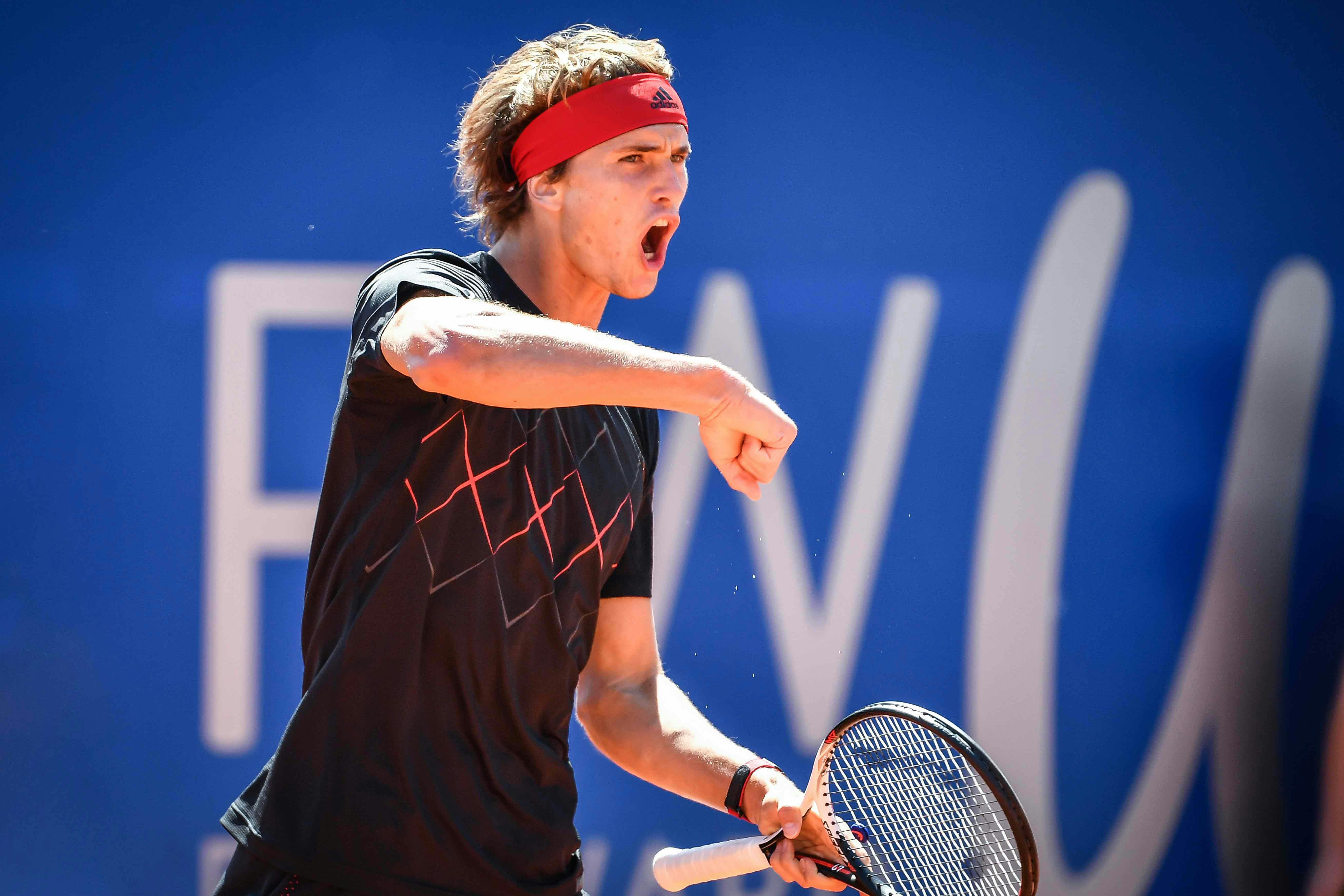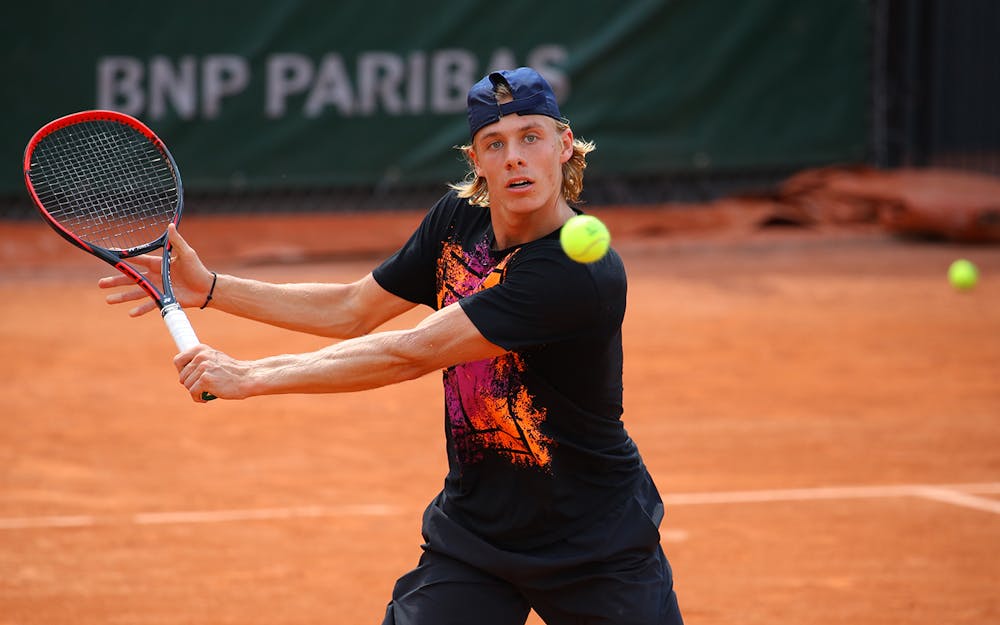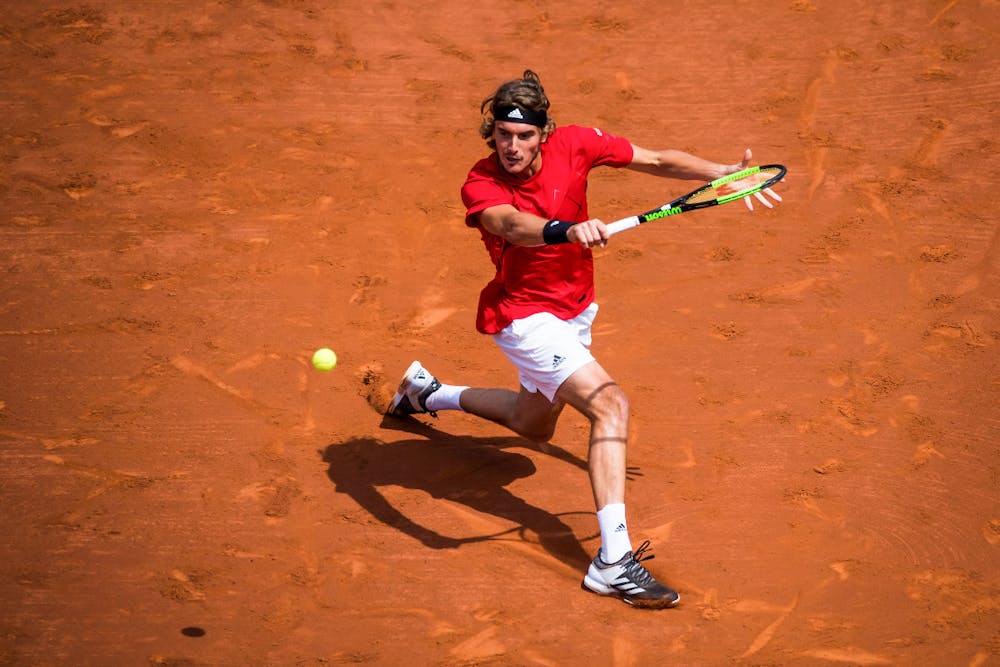Read more
The case for: Alexander Zverev

Denis Shapovalov and Stefanos Tsitsipas are among rising stars poised for future success at Roland-Garros - perhaps as early as 2018.

Come the strange day when Rafael Nadal retires and thus at last is not favourite to win Roland-Garros, who might fill the void?
Alexander Zverev and Dominic Thiem, of course. But other even younger players with clay capabilities are darting up the rankings, and some may even cause damage on the Paris dirt in 2018.
The leader of that pack is arguably Denis Shapovalov. The left-handed Canadian, who turned 19 last month, is not merely the youngest player in the top 100, but as of this month is the youngest to pierce the top 30 since Richard Gasquet in 2005. That achievement is largely the product of a marvellous European clay swing, where he amassed six wins from eight matches in Madrid and Rome, including victories over Tomas Berdych and Milos Raonic. Raonic is no longer Canadian No.1; his seven-year reign was snapped by his young compatriot.
All the more extraordinary to think that at Roland-Garros 2017, Shapovalov lost in the first round ... of qualifying. But famous wins over Juan Martin del Potro and Nadal at the Montreal Masters - where he eventually lost to Zverev in the semi-finals - were among the reasons why his fellow ATP players named him their most improved player of 2017.
But here’s the thing: he names his favourite surface as grass, as does the next name on the list – Greek 19-year-old Stefanos Tsitsipas, despite straight-sets wins over Dominic Thiem and Pablo Carreno Busta en route to the Barcelona final last month, and victory over Kevin Anderson in Estoril. There was also a brisk dismissal of one Denis Shapovalov in Monte Carlo, all of which has propelled Tsitsipas to the world no.40 slot. He is already by far the greatest Greek player in ATP ranking history, as none have previously breached the top 100.
With Tsitsipas a mere four months older than Shapovalov, the pair are not only the most marketable teenagers in the men’s game, but also they are their own quiz book. (How do you spell/pronounce Shapovalov/Tsitsipas? Who is the current Greek no.2?)

If you’re looking for a rising young player who actually names clay as his favourite surface, then the world No.56 Frances Tiafoe is your man. Naturally, that means that when he won his maiden ATP title this year, it was on the hard courts of Delray Beach – but his victory along the way over del Potro was impressive, to add to previous triumphs over Tomas Berdych and Alexander Zverev. And when the 2018 clay swing arrived, he beat Carreno Busta on a sprint to the semi-finals.
Tiafoe’s fellow American Reilly Opelka is another who names clay as his favourite surface. He is difficult to overlook – literally, as he is the tallest-ever player on the ATP Tour at 2.11m (6ft11in). At age 20 Opelka’s serve regularly breaches the 225kph (140mph) mark, speed which helped him grab 22 aces as he won the final of the Bordeaux Challenger only last weekend. That success bounced him 62 places up the rankings to No.144, and followed on from his maiden career top 10 win – over Jack Sock at Delray Beach.
If the name Felix Auger-Aliassime is difficult to memorise, then call him by his nickname of “FA2” and remember that he is the youngest to crack the top 200 since Nadal. The 17-year-old became the first player born this century to compete in a Masters 1000 event earlier this year in Indian Wells, where he earned his maiden Tour-level victory against Vasek Pospisil. Seven-time Grand Slam title winner John McEnroe is certain that Auger-Aliassime will crack the top 10, with the potential even to reach the top five through a rivalry with Shapovalov.
“In a great rivalry you see that both competitors make each other better players,” explained McEnroe. “I suspect that’s what’s going to happen in the next five or 10 years with those two.”
Don’t let’s overlook the fact a future clay-court great may lie among those contesting the junior event at Roland-Garros 2018. Rudolf Molleker, 17, became this year’s youngest winner to date at the Neckarcup Challenger, on home soil in Germany. A wildcard into that tournament, he defeated former world No.35 Jiri Vesely in the final in just his third Challenger appearance. He is the youngest German to win a title since Alexander Zverev in Braunschweig in 2014.
Shapovalov, Tsitsipas, Tiafoe, Opelka, Auger-Aliassime, Molleker… Might one of these young players one day see his reflection in the Coupe des Mousquetaires as he holds it aloft?